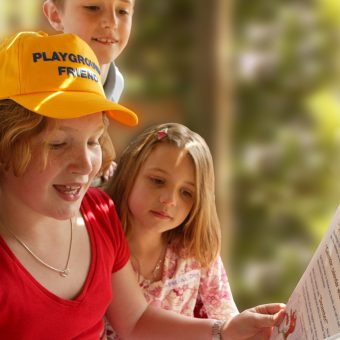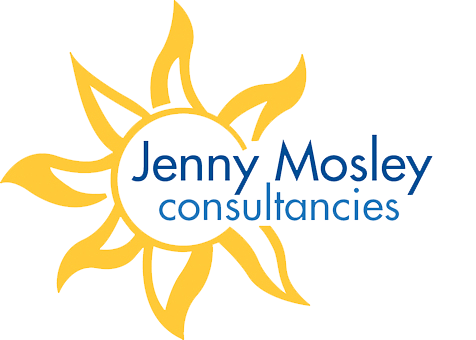Blog, Uncategorized
Peer Support, Unconditional Positive Warmth, Friendships and Family Circles
Over the past few years, the needs of children have become even more complex. Never before, due to the growth of  isolating technology, have children been in more need of respectful attention. The Looking Glass Theory of Self is specific – for us to feel we are affirmed and responded to – we need unconditional, positive warmth which is shown particularly through eye- contact. When you walk into school and someone lights up in their eyes and greets you warmly, you feel you’ve arrived in a safe place of belonging. Poor mental health has much to do with not having, in your life, a safe place to go to be listened to and supported. “Nothing is too powerful if it can be spoken” Alan Sillitoe. In proactive, positive schools working to a whole school mental health policy, they ensure all children receive weekly circle-time sessions so they can engage in listening and supporting, building shared values, team building through character education and self-experience. For most classes, the friendship and support of their peers is the best healer for low self-esteem.
isolating technology, have children been in more need of respectful attention. The Looking Glass Theory of Self is specific – for us to feel we are affirmed and responded to – we need unconditional, positive warmth which is shown particularly through eye- contact. When you walk into school and someone lights up in their eyes and greets you warmly, you feel you’ve arrived in a safe place of belonging. Poor mental health has much to do with not having, in your life, a safe place to go to be listened to and supported. “Nothing is too powerful if it can be spoken” Alan Sillitoe. In proactive, positive schools working to a whole school mental health policy, they ensure all children receive weekly circle-time sessions so they can engage in listening and supporting, building shared values, team building through character education and self-experience. For most classes, the friendship and support of their peers is the best healer for low self-esteem.
However, in every class there are ‘children beyond’ – not beyond help but beyond the normal ability to engage and listen. They are often in a high state of chaos and confusion and have learnt they’d rather have negative attention than none. Sometimes therefore they sabotage the goodwill of the adult running circle-time and disrupt its potential. Many teachers therefore, feeling highly dispirited, soon find reasons not to continue with it!
Aha… here is another well-tried workable solution. Family Circles! Unhappy, troubled children know all the pressure points to push on their own teachers and peers – so that they end up feeling the anger they feel! When you take them out of ‘damaged group dynamics’ situation, into the safety of a mixed age circle – new healthier dynamics grow. I’m forever saying to teachers having a tough time, ask a teacher of an older (or younger) class, who is also enthusiastic about circle-time, if they would be happy to do it at the same time – and swap children. Look at the list of children in both classes, noting who are the best role models to support each other. Offer younger children to work with ‘cooler’ older children – and older children love the responsibility for inspiring younger children … WIN WIN!
Recently I ran a Train The Trainers course… with teachers who went back each week with my ideas to take to their classes and then would come back on the Friday to talk it through (See my Train The Trainers Blog). I suggested to the teacher who was having problems with some children sabotaging circle time that she tried the Family Circle approach and this is what she wrote: “I bought in some Year 6 role models to my Year 4 class… it worked really well. The child who had initially been struggling so much with circle time who had found it hard to join in and do the right thing responded much better and actually was congratulated for his contributions. I am so very, very pleased and relieved.” It’s not exactly yet a full family circle approach but it shows what happens when we change the dynamics, alter the patterns by bringing in new life and new ideas. There is a wonderful quote in a little book called ‘Native American Wisdom’ where the elders and young people sat together daily in circles…
 “You have noticed that everything an Indian does is in a circle, and that is because the Power Of The World always works in circles, and everything tries to be round… even the seasons form a great circle in their changing, and always comeback again to where they were. The life of a man is a circle from childhood to childhood…” Black Elk (1863-1950) Oglala Sioux holy man.
“You have noticed that everything an Indian does is in a circle, and that is because the Power Of The World always works in circles, and everything tries to be round… even the seasons form a great circle in their changing, and always comeback again to where they were. The life of a man is a circle from childhood to childhood…” Black Elk (1863-1950) Oglala Sioux holy man.
Website Manager’s Notes
- All of Jenny’s training promotes core values which include speaking, listening, oracy and respect within schools and early years settings. Please phone 01225 767157 or email circletime@jennymosley.co.uk to enquire about training.
- Jenny Mosley is available for better behaviour and lunchtimes and playtimes INSET training days, Working In School Days and for different length projects involving several schools for schools training. All Jenny’s training can encourage friendships
- Find out about booking Jenny or attending open training conferences around the country throughout the year. Jenny also excels as an educational presenter at schools conferences, LA conferences and Headteacher conferences.
- The areas of Jenny’s expertise include training for positive behaviour for learning, early years training, training for midday supervisors and lunchtime supervisors, to promote calm dining halls and healthy, active playgrounds, also training for promoting social and communication skills for learning and training for mental health and wellbeing. To find out more about Dining Hall Helpers please ask.
- Jenny’s resources support all her areas of training and are available form her webshop.
- To contact us please phone 01225 767157 or email circletime@jennymosley.co.uk or use the contact form on our website. We look forward to hearing form you.
